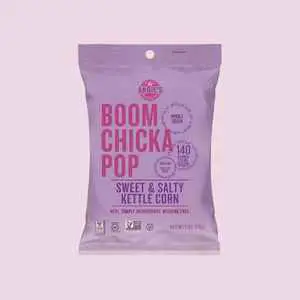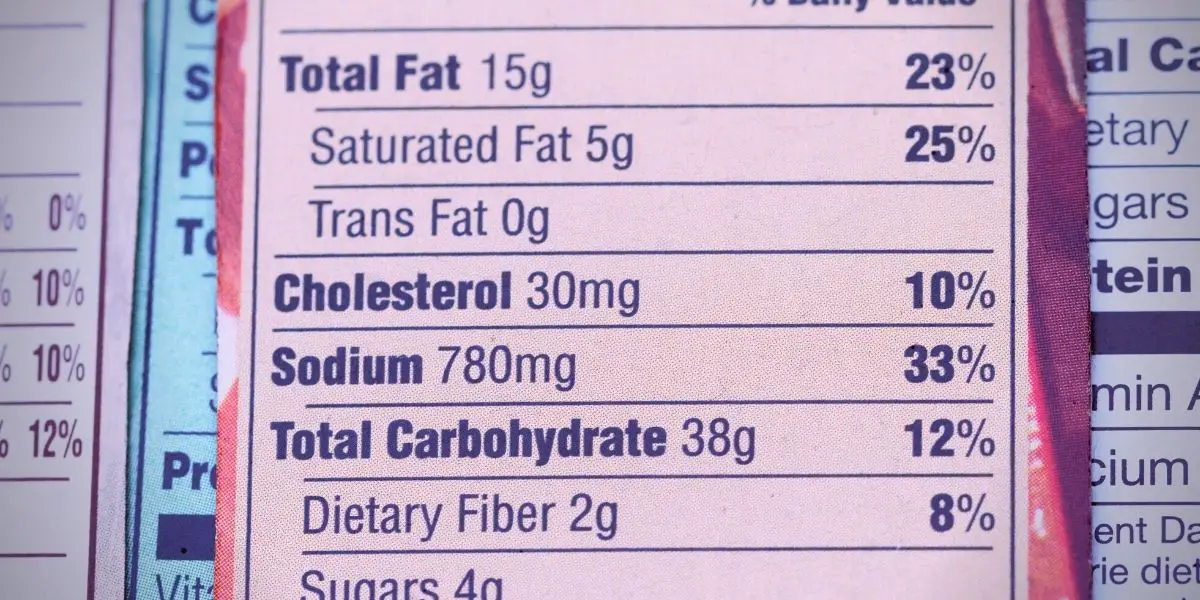Most people love munching on popcorn while watching a movie. But have you ever thought about the nutritional value of this snack to prevent mindless eating? In this article, we dive into whether popcorn is a healthy snack or whether you should reduce your consumption
Kettle Corn Popcorn
This type of popcorn is the sweetest variety, as it’s mixed with sugar, salt, and oil. Here’s the nutritional value of a one-cup serving of Orville Redenbacher’s Kettle Corn Classic Bag:
- Calories: 160
- Total fat: 8g
- Saturated fat: 4g
- Cholesterol: 0 mg
- Sodium: 160 mg
- Carbohydrates: 20g
- Fiber: 3g
- Sugars: 0g
- Protein: 3g

Air-Popped Popcorn
This popcorn variety is made using a hot air popper instead of a stovetop. Here’s the nutritional value of the average one-cup of air-popped popcorn:
- Calories: 93
- Total fat: 1.1g
- Saturated fat: 0.2g
- Cholesterol: 0mg
- Sodium: 1.9 mg
- Carbohydrates: 18.6g
- Fiber: 3.6g
- Sugars: 0.2g
- Protein: 3g

Movie Theater Popcorn
The main difference between regular popcorn and the movie theatre kind is flavacol, a rich ingredient containing butter and salt.
Here’s the nutritional value for the average one-cup serving of movie theatre popcorn:
- Calories: 1250
- Total fat: 75g
- Saturated fat: 41.7g
- Cholesterol: 0mg
- Sodium: 2500 mg
- Carbohydrates: 125g
- Fiber: 33.3g
- Sugars: 0g
- Protein: 16.7g

Microwave Popcorn
Microwave popcorn contains cooking oil and saturated fat to ensure that the kernels solidify at room temperature. It also includes seasonings and article flavors.
Here’s the nutritional value of the average 87-gram bag of microwave popcorn:
- Calories: 237–465
- Total fat: 26g
- Saturated fat: 13g
- Cholesterol: 0mg
- Sodium: 664 mg
- Carbohydrates: 50g
- Fiber: 8.7g
- Sugars: 0.3g
- Protein: 7.3g

Ready-in-Bag Popcorn
Readymade popcorn arrives to you cold and has already been cooked and prepared, making it a convenient snack.
Here’s the nutritional value of the average 28-gram pack of The Popcorn Factory’s butter popcorn:
- Calories: 160
- Total fat: 12g
- Saturated fat: 1.5g
- Cholesterol: 0mg
- Sodium: 160 mg
- Carbohydrates: 12g
- Fiber: 2g
- Sugars: 0g
- Protein: 2g

Is Popcorn Healthy?
Popcorn has many health benefits that make it a tasty snack and beneficial to your health. In particular, it doesn’t contain cholesterol; is low in fat and sugar; contains protein, vitamins, and minerals; and is high in fiber.
High in Salt and Sugar
On the other hand, popcorn that’s premade is usually high in salt and sugar, which contributes to an unhealthy result. For the best results, consider plain popcorn (that’s free from salt and sugar) and flavor it.
Aids in Weight Management
Popcorn has a high fiber content, which can help with losing weight by making you feel fuller for longer. Plus, this snack doesn’t contain a lot of calories, which can also assist with weight loss.
Lower Chances of Diabetes
Switching to popcorn (as opposed to potato chips) can reduce your risk of type 2 diabetes. This snack also has a low glycemic index (GI), which helps to maintain healthy blood sugar levels and avoid any fluctuation in foods high in IG.
A diet that’s low in GI helps to improve your lipid and glucose levels.
Reduced Risk of Heart Disease
Popcorn contains high levels of fiber, which can decrease the risk of cardiovascular diseases. Fiber is also an important component of a healthy diet, as it maintains bowel health, controls blood sugar levels, lowers cholesterol levels, and more.
Things to Consider with Popcorn
Although popcorn is generally healthy and contains some essential nutrients to help with weight management and create a lower risk of heart disease, for example, there are some ingredients to look out for.
Lots of oil and butter are two of the main factors that make popcorn unhealthy and have a high fat content.
For the best results, make popcorn at home yourself rather than buying a readymade bag. This way, you can reduce the amount of oil, butter, and salt used and switch to more nutritious toppings like dark chocolate and fruit as opposed to syrups.
Tips for Making Healthier Popcorn
- Avoid butter
- Make it on the stovetop
- Look into artificial flavors and preservatives
- Avoid microwave popcorn
- Add protein (such as peanut butter)
Sources
https://www.verywellfit.com/
https://www.nutritionix.com/food/microwave-popcorn
https://www.medicalnewstoday.com/
https://www.healthline.com/nutrition/popcorn-nutrition-and-health




